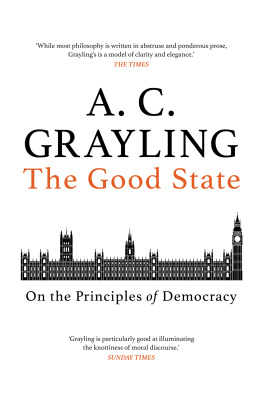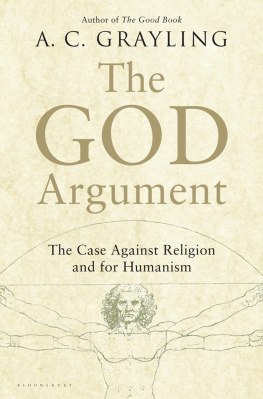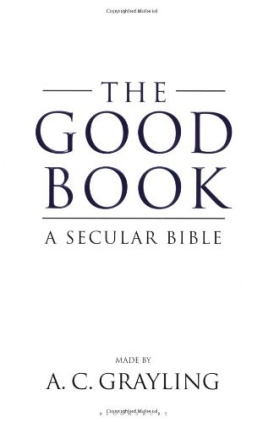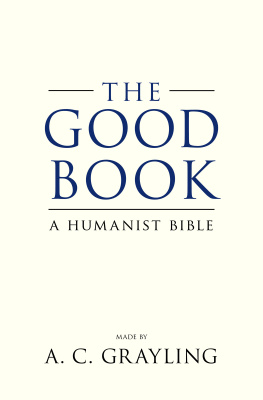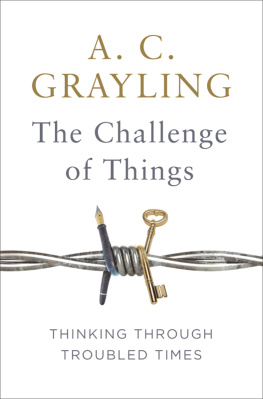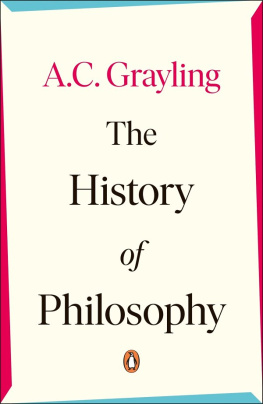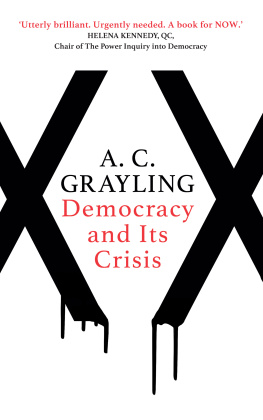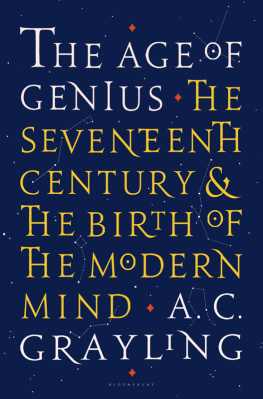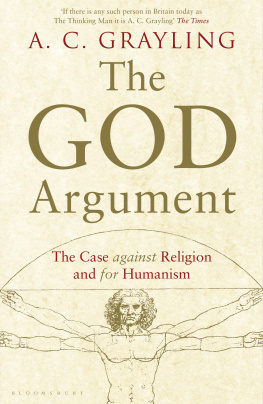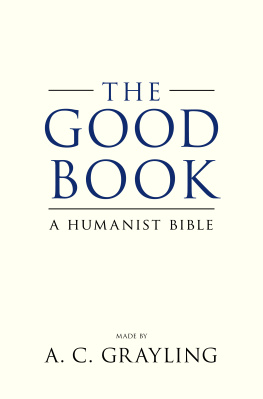CONTENTS
Dimissis nunc praeceptoribus nostris incipimus
per nos moveri et a confessis transimus ad dubia.
Seneca, Naturales Quaestiones II.21
For Madeleine and all questioners
Introduction
W e bark our shins against the stones of life with sufficient frequency, whoever we are and wherever we live even in peaceful and prosperous parts of the world to find ourselves obliged to seek answers to the philosophical questions that such bruising prompts. We might not call them philosophical questions, or think of ourselves as engaged in anything so profound (to some, so pretentious) as philosophical reflection; but the truth is, that is exactly what such questions as these are: What matters? What is the right way to live? What do I owe to myself, to others and to society? What kinds of lives are good and meaningful? Moreover, these are only the most obvious and frequently asked among philosophical questions, for reflective people are also likely to wonder about such further matters as the nature of the universe, whether mind is separate from body, the nature and extent of human rights, the best political organisation for society, and much more.
The pages that follow address some of these questions, not to answer them so much as to provide material suggestions, considerations, arguments that might be useful in seeking answers. There are indeed books that offer definitive answers to questions like these; dogmatic books, books of persuasion or exhortation selling one or another party line on the great questions. This book is not one such. Its premise is different: it starts from the fact that philosophy is, among other things, the enterprise par excellence of thinking things through, and engaging in the conversation of mankind about these great questions and about the myriad lesser questions that are part of the fabric of life too. Ultimately philosophy is about thinking for oneself, and making choices, and seeking to live according to them, with the aim of achieving something good. It is opposed to one-size-fits-all nostrums, to authorities ancient or modern who claim to have all the answers and who instruct everyone else not to think, but just to believe and obey.
It is also, indeed, about the realisation that not all questions have definitive answers; some have no answers, and others have a variety of answers dependent on other things.
But it is also about the realisation that sometimes, when there are no answers, exploring the questions can by itself bring a great gain in understanding and insight.
In some of these discussions I state my own view, sometimes emphatically. That invites response, comment, agreement or disagreement; the important thing is that it is an invitation to a conversation, not the dogmatic termination of one. Some of the questions will not look at all philosophical, but instead practical, historical, literary or something else; but there was a reason why they were asked of someone who is expected to reflect on the philosophical dimensions of possible answers, and they show that everything has such dimensions, however unobvious that might seem at first.
Almost everything that follows in these pages has its ancestor in essays I wrote in response to questions. In two cases this was explicitly so: in a column in Prospect magazine called Graylings Question (a title chosen by the magazines editor) I responded to philosophical conundrums sent in by readers, and in a column in The Times I commented on questions prevalent in the atmosphere of public concern each week. In other places, such as the New Scientist , the Dubliner magazine, the Guardian comment section, and elsewhere, the questions to which I responded were implicit: but there too the task was to think of what might contribute to answering them, or at least to understanding better what was being asked.
Hence my title, Thinking of Answers . The questions and the answers have a range and diversity that are reflective of the multiple and miscellaneous character of the interests, problems, dilemmas and concerns that arise when people think and talk; it has been an education in itself to be invited to respond to them in this way. I am grateful to the editors of the various journals and newspapers where the ancestors of these essays first appeared, for the opportunities from which this volume arises.
As the word ancestors in that last sentence suggests, I have revised and extended almost all of the essays, but I have also kept most of them fairly short because the purpose in hand offering suggestions and ideas about answers, not dictating what the answers should be invites brevity. Given that these essays are intended as a stimulus for thought, and not as the final word on what to think, it is worth repeating this point for emphasis: offering stimuli for thinking is the opposite of offering extensive treatises in search of definitiveness. This is a starting point; the rest of the endeavour is for the reader.
Happiness and the Good
Does being happy make us good?
And does being good make us happy?
B ertrand Russell was emphatically of the opinion that being happy makes us good, and equally emphatic that certain ideas about what is good make people unhappy. It is tempting to agree with both points, even if they need qualification; for assuredly, being happy is far more likely to make us good than if we are unhappy, and puritanism of all forms has certainly made plenty of people unhappy.
But there are, of course, no guarantees in either direction. The feckless ruffian might be happy but not good, the rigidly orthodox practitioner of a narrow and self-denying morality might suffer in order to obey its strictures, yet take pleasure in thus suffering; human nature is various and not infrequently weird.
On the face of it the questions here might seem to be empirical rather than philosophical. One can imagine a votary of the new school of experimental philosophy consisting of philosophers who hand out questionnaires to find out what people think about morality, knowledge, the self, truth, rationality, free will and other great staples of philosophical enquiry seeing this as an opportunity to exercise ingenuity. Critics of this approach point out that work of this kind is better done by empirical social science, and anyway only results in descriptions of what people think not always a secure guide to what people should think.
But in fact there is a deep philosophical point behind the idea of a relationship between goodness and happiness. More carefully phrased, the two questions concern the quality of lives perceived by those living them as being flourishing and satisfying, with valuable relationships at their core, and directed at the attainment of aims worth pursuing. Suppose one had a conception of such a life, and could make a sound case for its value: it would be hard to disentangle the fact of its being a well-doing and positive life (in which, therefore, the person living it is a good person) from that persons sense of eudaimonia Aristotles idea of flourishing and satisfaction, now usually and rather feebly translated as happiness. On this view of the matter, happiness and goodness turn out to be the reverse and obverse of the same coin, making their relationship a peculiarly intimate and mutually reinforcing one.
But given the thoughts mentioned above that there might be some happy but bad folk and some good (by some lights) but unhappy folk the connection cannot be a necessary one. They only become reciprocal in the optimal way suggested when the notions of goodness and happiness at stake are appropriately defined. And that is an obvious enough point: Cyril Joad would have produced his standard Brains Trust remark It depends what you mean by... on being asked either question, for one can only get so far with generalisations. In this case that means one cannot give a fully satisfactory answer until a clear and detailed account has been given of what each of the vague feel-good words good and happy means: which is a large part of the task of ethics as a whole. The following discussions between them seek to contribute towards a clarification of both, sometimes by direct and sometimes by indirect means. With such large, amorphous and important concepts, the task of exploring them has to involve a variety of approaches, one of which to quote Wittgenstein is to assemble reminders of things we otherwise know.
Next page

